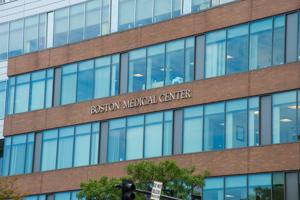Our multidisciplinary team of sickle cell disease specialists, nurses, and social workers provides highly personalized care tailored to each patient, including transformative gene therapies. With dedicated pediatric and adult programs and a Transitional Care Clinic, we ensure consistent, coordinated support at every stage of life. We are also committed to advancing treatment options that can ease pain and reduce complications.
Leading Expertise
New England’s Largest Sickle Cell Center
BMC cares for 600+ adult and pediatric patients annually.
Transformative Gene Therapy Access
We offer both FDA-approved gene therapies, Casgevy and Lyfgenia, to eligible adults with sickle cell disease.
Seamless Transitional Care
Our providers specialize in innovative programs designed to offer lifelong support.
Meet the Providers Who Are Rewriting Healthcare
Elizabeth S. Klings, MD

Charlene M. Sylvestre, NP, MSN, MSW, RN, NP-C, CCAP

Reggie R. Thomasson, MD

Find Resources and Support
Sickle cell disease can affect every part of your life. In addition to excellent care, BMC offers support and resources to help you through this time and advice on how to take the best care of yourself and what to expect.
Locations and Contact
Adult Clinic
Monday – Friday 8 a.m. to 4 p.m.
Pediatric Clinic
Monday, Wednesday, Friday 8 a.m. to 5:30 p.m.; Tuesday, Thursday 8 a.m. to 8 p.m.
Transitional Care Program
First Thursday of every month
Related Departments and Clinics
Sickle Cell Disease Adult Clinic
Sickle Cell Disease Pediatric Clinic
Sickle Cell Disease Transitional Care Clinic
Integrated Behavioral Health
At BMC, I am able to ask questions and learn more. Advocating for yourself and your care is so important, especially for SCD. Ingrid Ortiz, Sickle Cell PatientRead Ingrid’s Story Meet Dr. McMahon

Education and Training
Sickle Cell Disease Advanced Fellowship
BMC’s one-year, non-ACGME-accredited fellowship is one of only two in the U.S. focused on advancing care for adults with sickle cell disease and training future specialists in this area.
Hematology Research Track
This four-year program combines standard hematology/oncology fellowship training with two years dedicated to hematology-focused basic, translational, or clinical research.
Research

Sickle Cell Disease Research
BMC researchers are finding innovative new ways to treat and cure blood disorders. As our patient, you’ll have access to a wide range of clinical trials from both BMC researchers and researchers at other institutions.

Sickle Cell Disease Clinical Trials
BMC researchers are finding innovative new ways to treat and cure Sickle Cell Disease. While we enroll any and all eligible patients in clinical trials, BMC physicians are leaders in the enrollment of under-represented minorities in clinical trials.



